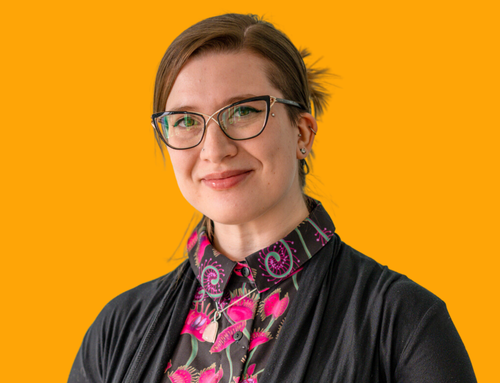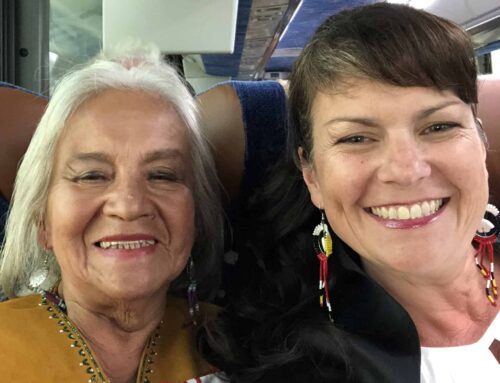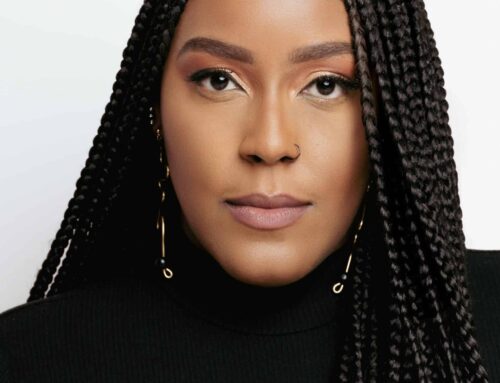
In the non-profit world, you’re taught that being in a position of a facilitator or community leader means that everyone (and their mothers) will trust you in what seems like record time. This is simply not true.
There is a young girl in my program called the Village Bloggurls (VBG), a mentorship and media literacy program for young girls. Let's call her "J". On J's first day at the Village Bloggurls, she cried upon seeing me and the other girls in the program. She was flustered with her words, telling me over and over again she didn't want to be here and would rather be at home. I gave her some time to sit with her feelings, and she eventually decided to stay.
It took almost the entire year for us to start speaking on a regular basis. She was the child that gave one word answers to everything. My motto as a youth worker is to "meet people where they're at". That's what I did with J. I would continue to engage her in big and small group settings (and individually once I saw that was comfortable for her) asking her about her many interests. I wanted to remind her that I value her presence in the program and the fact that she shared just a few words with me.
I think this meant something to J because 3 years later, she is the first one to show up at program.
To me, accountability means being responsible for my decisions and actions, using my power to create spaces for those that need it, apologizing with no excuses, and ultimately doing better because I know better. Fostering meaningful relationships with young people takes a lot of time because they need to know that you can be consistently accountable to them.
Here are 5 ways to be accountable to the youth you work with:
1. Realize that you have power
You are the most powerful person in the room: you set the rules, you ask the questions and you decide what happens in the space. Your power creates a dynamic that many youth may not be able to articulate, but they feel it. They may be too afraid to ask questions or correct you on something you said/did. Your job is to create space where this dialogue is possible.
This can look like letting youth decide what they learn, asking them how they learn so that program delivery is engaging, or even having them run sessions. In VBG, the mentors sign up to run their own workshops on any topic that is important and relevant to them.
Rather than making yourself necessary to their learning, you want to make their critical thinking skills necessary to their learning. That is how you share power: giving youth the opportunity to recognize their own.
2. Be Available
Of course we can't be on call to the youth we work with. A lot of times, the non-profit industry makes us feel like we can't practice creating our own boundaries. However, embedding time to be available in different ways within a session is possible.
Create an anonymous Ask Box, give youth sticky notes to write questions on during a session and collect them afterwards, or have them work in small groups to ask questions together. If a closed Facebook group is an option, go for that too (works for us).
3. Say "I Don't Know" with Pride
No one knows everything, not even you and me. That's not a bad thing!
It is important to let youth know that you may not know the answer to something at the time or that a question/problem confuses you. Just because you are the "teacher", doesn't mean that you can answer every question. It gives youth the opportunity to make informed decisions about who/what they can consult to inform themselves. It gives you the opportunity to not only inform yourself, but to ask the youth for resources.
Last year we had a conversation about social media, its benefits and its disadvantages. All of a sudden, the girls started listing off all of these social media apps and platforms I had never heard of, such as Snapchat. I had to stop the conversation and say,
"I have no idea what you all are talking about."
This meant that I had to take a step back and listen to them because they are the authorities on this knowledge. Recognizing this as something that will always happen is key to building relationships.
4. Apologize
We all make mistakes yes, but when you have power, sometimes you feel like you don't have to fess up to them.
Wrong.
Apologizing (publicly) lets youth know that regardless of your authority, you know right from wrong. If you make a mistake, they can trust that you won't trivialize their experiences/abuse your power by acting like it never happened. It also gives you an opportunity to model how to apologize without being in "teacher mode" (i.e., "I'm going to teach you how to apologize" rather than actually doing it yourself).
Cultural critic and writer dream hampton has a great tweet that summarizes how to apologize:
"Anatomy of An Apology: 1) I’m sorry 2) Here’s my understanding of how I hurt you 3) I will never do this again."
It's really that simple.
5. Ask for feedback and suggestions
It is really hard to guess what young people are thinking about or what their experiences are if they are not asked. Ongoing dialogue that gives them the opportunity to give you constructive criticism is important for this reason. It not only reverses the power dynamic, it also helps improve your facilitation and workshop designing skills. Who better to give you feedback than the people you work with?
I asked the VBG youth to create a tableaux of different forms of power. Before we began, one of the mentors suggested drawing it on paper instead to figure out what people already know. I thought it was a brilliant idea (and I let the mentor know that), and I switched the activity right away.
Do you use any of these strategies? How did it work for you? Do you have any other tips? I'd love to hear from you.
Learn More
- Take the pledge to join GEN1 and help build the first generation free of violence against women and girls.
- Sign up for our e-newsletter to have our latest stories and resources sent to your inbox.
- Follow us on Facebook and Twitter to join a national conversation on ending violence.







